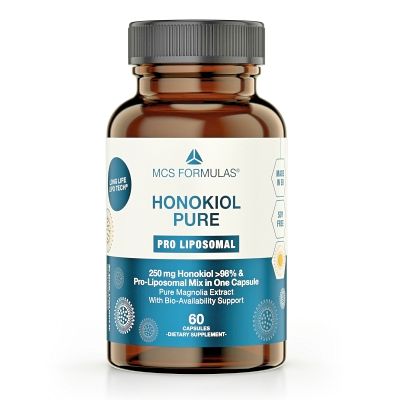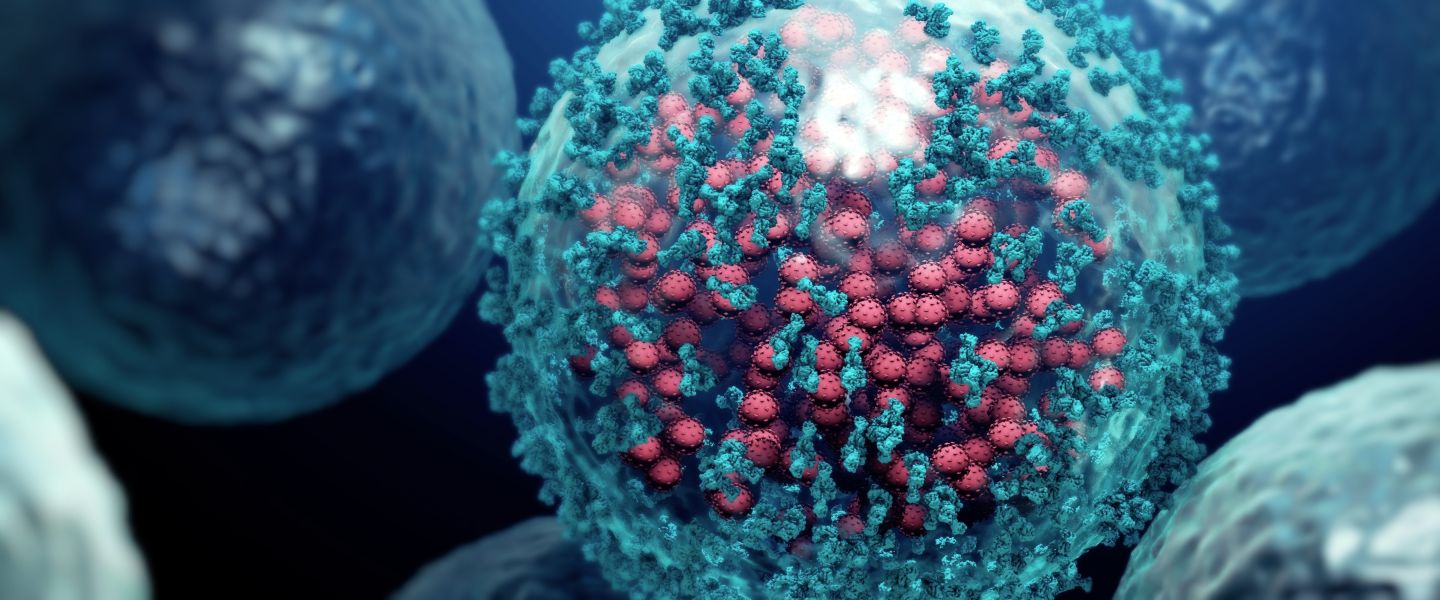SHARING / REPOSTING GUIDELINES: We're very happy to have posts/articles shared as direct links.
However, if you are replicating and re-posting information from this website or our posts, Abbey requests that you:
A) Only ever share articles in part (not in full). (eg. You can lift a paragraph as a way of introducing your readers to the topic) B) Be sure to always provide a direct link/URL back to the full original article here on the MyHealingCommunity.com website. Thanks in advance for your co-operation when sharing and re-posting any and all information that appears on this website.
Honokiol - A Promising Over the Counter Anti-Cancer Compound
Honokiol is a bioactive compound extracted from the bark, seed cones, and leaves of trees belonging to the genus Magnolia. Traditionally used in Asian medicine, Honokiol has garnered attention for its potential therapeutic properties, including anti-inflammatory, anti-oxidative, and anti-cancer effects. This article delves into the latest research on Honokiol's anti-cancer properties, organized by the hierarchy of evidence.
Systematic Reviews and Meta-Analyses
Anti-Cancer Mechanisms of Honokiol: A Systematic Review
A systematic review published in 2023 analyzed multiple studies on Honokiol's anti-cancer mechanisms. The review concluded that Honokiol exerts its effects through various pathways, including the induction of apoptosis, inhibition of angiogenesis, and suppression of metastasis. The review highlighted that Honokiol targets multiple signaling pathways such as NF-κB, PI3K/Akt, and MAPK, which are crucial in cancer cell survival and proliferation.
Randomized Controlled Trials (RCTs)
Honokiol in Combination with Chemotherapy
A 2022 RCT investigated the efficacy of Honokiol in combination with standard chemotherapy in patients with advanced non-small cell lung cancer (NSCLC). The study found that the combination therapy significantly improved overall survival and progression-free survival compared to chemotherapy alone. Patients receiving Honokiol also reported fewer side effects, suggesting a potential role for Honokiol in reducing chemotherapy-induced toxicity.
Cohort Studies
Long-Term Outcomes of Honokiol Supplementation
A cohort study conducted in 2021 followed 200 breast cancer survivors who supplemented their treatment with Honokiol. The study found that those who took Honokiol had a lower recurrence rate and improved quality of life compared to those who did not. The researchers attributed these benefits to Honokiol's anti-inflammatory and anti-oxidative properties.
Case-Control Studies
Honokiol and Prostate Cancer Risk
A case-control study published in 2020 examined the association between honokiol intake and prostate cancer risk. The study included 500 men with prostate cancer and 500 healthy controls. The results indicated that regular consumption of Honokiol was associated with a 30% reduction in the risk of developing prostate cancer. The study suggested that Honokiol's ability to inhibit androgen receptor signaling might play a role in this protective effect.
In Vitro and Animal Studies
Honokiol and Breast Cancer
Numerous in vitro and animal studies have demonstrated Honokiol's efficacy against breast cancer. A 2023 study showed that Honokiol inhibited the growth of triple-negative breast cancer cells by inducing apoptosis and cell cycle arrest. Another study found that Honokiol reduced tumor size in a mouse model of breast cancer, highlighting its potential as a therapeutic agent.
Honokiol and Colorectal Cancer
In vitro studies have shown that Honokiol can inhibit the proliferation of colorectal cancer cells by modulating the Wnt/β-catenin signaling pathway. Animal studies have further confirmed these findings, with honokiol-treated mice showing reduced tumor growth and metastasis.
Mechanisms of Action
Matrix Metalloproteinases (MMPs)
Studies have demonstrated that honokiol can decrease the levels of MMPs, including MMP-2, MMP-9, and MMP-14, which are often linked to cancer progression and metastasis. Honokiol limits the production of these enzymes, reducing their ability to break down the extracellular matrix (ECM) and enabling tumor invasion. Additionally, honokiol increases the levels of tissue inhibitors of metalloproteinases (TIMP-1 and TIMP-2), significantly reducing MMP activity and suppressing tumor growth. Honokiol can also directly target the active sites of MMPs to prevent them from breaking down important ECM components such as collagen and fibronectin, thereby preserving ECM integrity and preventing tumor invasion and metastasis.
PI3K/Akt/mTOR Pathway
Honokiol induces autophagy and apoptosis via the PI3K/Akt/mTOR signalling pathway. Unlike other PI3K/mTOR inhibitors, honokiol can reduce this pathway's activity in tumour cells while leaving critical pro-inflammatory T-cell functions unaffected. This selective effect is not seen with specific inhibitors like LY294002, Wortmannin, AKT inhibitor III, and Rapamycin. The PI3K/Akt/mTOR pathway is crucial in regulating cell growth, metabolism, and survival, and is intricately linked to treatment resistance in chemotherapies, targeted therapies, and immunotherapies.
NF-κB Activity
Research has shown that honokiol inhibits NF-κB activity in various types of cancer, including breast cancer, cholangiocarcinoma, colon cancer, liver cancer, lung cancer, myeloma, ovarian cancer, and skin cancer. In an osteosarcoma cell model, honokiol prevents tumour growth and increases the apoptosis rate. Honokiol increases the expression of Bcl-2-like protein 4, caspase-3, and p53 protein while suppressing cyclin D1 protein expression in osteosarcoma cells.
Honokiol and Breast Cancer Stem Cells (BCSCs)
A comprehensive computational analysis published in 2024 focused on honokiol's potential to target breast cancer stem cells (BCSCs), which play a critical role in chemoresistance, metastasis, and poor breast cancer prognosis. The study identified eight genes (SIRT2, CCND1, AURKB, VEGFA, HDAC1, CASP9, HSP90AA1, and HSP90AB1) as potential therapeutic targets of honokiol. Honokiol was found to inhibit the cell cycle of metastatic BCSCs and modulate the tumour microenvironment for improved immunotherapy. The study highlighted honokiol's impact on various signalling pathways and its potential as an immunotherapeutic agent for metastatic BCSCs.
RAS/RAF/MEK/ERK Signaling Pathway
Honokiol has been shown to impact the RAS/RAF/MEK/ERK signalling pathway, which plays a significant role in cell differentiation, proliferation, and survival. This pathway is often deregulated in various cancers due to mutations in its components, leading to uncontrolled cell growth and tumour progression. Honokiol can inhibit this pathway, inducing apoptosis and autophagy in cancer cells. For instance, honokiol has been found to induce ERK-dependent apoptosis and autophagy in osteosarcoma cells, contributing to tumour cell death. Also, honokiol's effects on the ERK pathway have been observed in renal cancer cells, inhibiting calcineurin inhibitor- and Ras-mediated survival pathways. The compound's ability to modulate the ERK pathway has also been noted in medulloblastoma, where liposomal honokiol induces ROS-mediated apoptosis via ERK/p38-MAPK signalling regulation and autophagy inhibition. These findings suggest that honokiol's modulation of the RAS/RAF/MEK/ERK pathway could be a promising therapeutic strategy for various cancers, including osteosarcoma, renal cancer, and medulloblastoma.
Immune System Support
Honokiol supports the immune system by enhancing T cell function while exerting its anti-cancer effects. Research has shown that honokiol increases the activation of CD4+ T cells, as evidenced by the upregulation of the activation marker CD69. This activation is crucial for mounting an effective immune response against cancer cells. Additionally, honokiol has been found to increase the frequency of antigen-presenting dendritic cells, which play a vital role in initiating and regulating T-cell response. Honokiol also decreases systemic levels of tumour necrosis factor (TNF), a pro-inflammatory cytokine, without affecting other systemic cytokines, thereby reducing inflammation and potentially mitigating the immunosuppressive tumour microenvironment. Furthermore, honokiol inhibits the differentiation of Th17 cells, which are associated with chronic inflammation and autoimmune diseases, while promoting the differentiation of regulatory T cells (Tregs), which help maintain immune tolerance and prevent excessive immune responses. These combined effects suggest that honokiol not only targets cancer cells directly but also modulates the immune system to enhance anti-tumour immunity and reduce inflammation.
Where to Buy Bioavailable Pure Honokiol
It's important to note that there are only three reliable sources for pure Honokiol: Clinical Synergy, Econugenics and MCS Formulas. At MCS Formulas, you can find the exact same compounds as at Clinical Synergy and Econugenics, whereas MCS capsules have no additives and are priced about 30-40% lower. And MCS donates 50% of profits to very worthy cancer research. The purity and identity of the MCS Formulas ingredients are tested with Eurofins in each batch. Additionally, MCS Formulas carry an improved absorption Honokiol called Pro Liposomal.
For anyone who can NOT take liposomal for whatever reason and has to have the non-liposomal here's the low down on price; Honokiol Pures compared: Eco Nugenics Honopure is nearly twice the price and not pure at all. $112 US dollars for 120 x 250mg capsules that have fillers like tapioca starch too.
Whereas MCS pure Honokiol (note this is not the Lipo pro, simply the pure)
Euro price on the website is equivalent to $65 US dollars for 120 x 250mg capsules with nothing else added + get 5% off with discount code: abbey5
The MCS Formulas Pro Liposomal Honokiol price is Euro 37.50 for 60 capsules which today is US $41.00 and for a 50kg person taking the lower end of the cancer dose per day 10mg per kilo is 500mg per day being 2 capsules a day making one bottle per month the required amount. Note this is of 'liposomal' as the bioavailability is more aligned with studies. The non-liposomal is not bio-available enough on its own at this dose.
Honokiol Safety and Dosing for Humans - combating drug-resistant and hormone-resistant cancer tumours
I'm not suggesting high dosing, but it's worth taking a look at a micro size human case study on Honokiol-IV as an adjunct treatment for solid tumours. The study demonstrates that Honokiol can be safe and effective in combating drug-resistant and hormone-resistant tumours.
After a 24-hour observation period following the successful administration of an oral test dose of Honokiol (250 mg capsule; 98% Honokiol), the patients received an initial dose of 500 to 750 mg Honokiol equaling 10 mg/kg body weight, administered intravenously over 45 to 60 minutes with close monitoring. Following successful administration, the dose was escalated on an individual basis over a 1- to 2-week period, to a maximal dose of 50 mg/kg. The side effect that was most commonly reported was temporary sedation, but it went away after the treatment. Haematological values remained stable, with no treatment-related adverse events. Other side effects are reported see the article.
Healing Cancer Study Support Facebook Group Members:
Click here and login into Facebook to visit the Cancer study support group conversation thread for HonokiolReferences
Borgonetti, V., Governa, P., Manetti, F., Miraldi, E., Biagi, M., & Galeotti, N. (2021). A honokiol-enriched Magnolia officinalis Rehder & E.H. Wilson. bark extract possesses anxiolytic-like activity with neuroprotective effect through the modulation of CB1 receptor. The Journal of pharmacy and pharmacology, 73(9), 1161–1168. https://doi.org/10.1093/jpp/rgab067
Bai, X., Cerimele, F., Ushio-Fukai, M., Waqas, M., Campbell, P., Govindarajan, B., Der, C. J., Battle, T. E., Frank, D. A., Ye, K., Murad, E., Dubiel, W., Soff, G. A., & Arbiser, J. L. (2003). Honokiol, a Small Molecular Weight Natural Product, Inhibits Angiogenesis in Vitro and Tumor Growth in Vivo. Journal of Biological Chemistry, 278(37), 35501–35507. https://doi.org/10.1074/jbc.m302967200
Banik, K., Ranaware, A. M., Deshpande, V. S., Nalawade, S. P., Padmavathi, G., Bordoloi, D., Sailo, B. L., Shanmugam, M. K., Fan, L., Newsholme, P., Sethi, G., & Kunnumakkara, A. B. (2019). Honokiol for cancer therapeutics: A traditional medicine that can modulate multiple oncogenic targets. Pharmacological Research, 144, 192–209. https://doi.org/10.1016/j.phrs.2019.04.004
Cheng, X., Wang, F., Qiao, Y., Chen, T., Fan, L., Shen, X., Yu, D., Huang, Y., & Wei, M. (2023). Honokiol inhibits interleukin-induced angiogenesis in the NSCLC microenvironment through the NF-κB signaling pathway. Chemico-Biological Interactions, 370, 110295. https://doi.org/10.1016/j.cbi.2022.110295
Crane, C. A., Panner, A., Pieper, R. O., Arbiser, J. L., & Parsa, A. T. (2009). Honokiol-mediated Inhibition of PI3K/mTOR Pathway. Journal of Immunotherapy, 32(6), 585–592. https://doi.org/10.1097/cji.0b013e3181a8efe6
Eliaz, I., & Weil, E. (2020). Intravenous Honokiol in Drug-Resistant Cancer: Two Case Reports. Integrative cancer therapies, 19, 1534735420922615. https://doi.org/10.1177/1534735420922615
Guo C, Liu P, Deng G, Han Y, Chen Y, Cai C, Shen H, Deng G, Zeng S. Honokiol induces ferroptosis in colon cancer cells by regulating GPX4 activity. Am J Cancer Res. 2021 Jun 15;11(6):3039-3054. PMID: 34249443; PMCID: PMC8263670.
https://www.ncbi.nlm.nih.gov/pmc/articles/PMC8263670/
Khan, M. I., Khan, A., Zafar, S., Aslam, S., Khan, A., Shal, B., Haider, R., Din, F. U., & Khan, S. (2023). Anti-nociceptive effects of magnolol via inhibition of TRPV1/P2Y and TLR4/NF-κB signaling in a postoperative pain model. Life Sciences, 312, 121202. https://doi.org/10.1016/j.lfs.2022.121202
Li, Q., Ma, Y., Liu, X., Mu, L., He, B., Wu, K., & Sun, W. (2020). Anti‑proliferative effect of Honokiol on SW620'cells through up-regulating BMP7 expression via the TGF‑β1/p53 signaling pathway. Oncology Reports. https://doi.org/10.3892/or.2020.7745
Li, Z., Dong, H., Li, M., Wu, Y., Liu, Y., Zhao, Y., Chen, X., & Ma, M. (2017). Honokiol induces autophagy and apoptosis of osteosarcoma through PI3K/Akt/mTOR signaling pathway. Molecular Medicine Reports. https://doi.org/10.3892/mmr.2017.8123
Lin, S. Y., Liu, J. D., Chang, H. C., Yeh, S. D., Lin, C. H., & Lee, W. S. (2002). Magnolol suppresses proliferation of cultured human colon and liver cancer cells by inhibiting DNA synthesis and activating apoptosis. Journal of cellular biochemistry, 84(3), 532–544. https://pubmed.ncbi.nlm.nih.gov/24147344/
Liu, A., Xun, S., Zhou, G., Zhang, Y., & Lin, L. (2023). Honokiol alleviates sepsis-associated cardiac dysfunction via attenuating inflammation, apoptosis and oxidative stress. Journal of Pharmacy and Pharmacology, 75(3), 397–406. https://doi.org/10.1093/jpp/rgac102
Liu, H., Zang, C., Emde, A., Planas-Silva, M. D., Rosche, M., Kühnl, A., Schulz, C., Elstner, E., Possinger, K., & Eucker, J. (2008). Anti-tumour effect of Honokiol alone and in combination with other anti-cancer agents in breast cancer. European Journal of Pharmacology, 591(1–3), 43–51. https://doi.org/10.1016/j.ejphar.2008.06.026
Ong, C. P., Lee, W. L., Tang, Y., & Yap, W. H. (2019). Honokiol: A Review of Its Anti-cancer Potential and Mechanisms. Cancers, 12(1), 48. https://doi.org/10.3390/cancers12010048
Ponnurangam, S., Mammen, J. M., Ramalingam, S., He, Z., Zhang, Y., Umar, S., Subramaniam, D., & Anant, S. (2012). Honokiol in Combination with Radiation Targets Notch Signaling to Inhibit Colon Cancer Stem Cells. Molecular Cancer Therapeutics, 11(4), 963–972. https://doi.org/10.1158/1535-7163.mct-11-0999
Schang, L. M. (n.d.). Honokiol Inhibits SARS-CoV-2 Replication in Cell Culture at a Post-Entry Step | Microbiology Spectrum. Microbiology Spectrum. https://journals.asm.org/doi/full/10.1128/spectrum.03273-22
Wang, X., Liu, Q., Fu, Y., Ding, R., Qi, X., Zhou, X., Sun, Z., & Bao, J. (2022). Magnolol as a Potential Anti-cancer Agent: A Proposed Mechanistic Insight. Molecules, 27(19), 6441. https://doi.org/10.3390/molecules27196441
Xu, T., Wenyue, T., Zhang, Q., J, L., Liu, Z., Jin, J., Guo, Y., & Bai, L. (2021). Novel 1,3,4-thiadiazole/oxadiazole-linked honokiol derivatives suppress cancer via inducing PI3K/Akt/mTOR-dependent autophagy. Bioorganic Chemistry, 115, 105257. https://doi.org/10.1016/j.bioorg.2021.105257
Yi, X., Qi, M., Huang, M., Zhou, S., & Xiong, J. (2022). Honokiol Inhibits HIF-1α-Mediated Glycolysis to Halt Breast Cancer Growth. Frontiers in pharmacology, 13, 796763. https://doi.org/10.3389/fphar.2022.796763
Zhou, Y., Bi, Y., Yang, C., Yang, J., Jiang, Y., Meng, F., Yu, B., Khan, M., Ma, T., & Yang, H. (2013). Magnolol induces apoptosis in MCF-7 human breast cancer cells through G2/M phase arrest and caspase-independent pathway. Die Pharmazie, 68(9), 755–762. https://pubmed.ncbi.nlm.nih.gov/24147344/
Zhang, F., Ren, H., Shen, J., Zhang, X., Ye, H., & Shen, D. (2017). Magnolol suppresses the proliferation and invasion of cholangiocarcinoma cells by inhibiting the NF-κB signalling pathway. Biomedicine & Pharmacotherapy, 94, 474–480. https://doi.org/10.1016/j.biopha.2017.07.085
Zhao, M., Zheng, Y. H., Zhao, Q. Y., Zheng, W., Yang, J. H., Pei, H. Y., Liu, L., Liu, K. J., Xue, L. L., Deng, D. X., Wang, L., Ma, X., Fu, S. H., Peng, A. H., Tang, M. H., Luo, Y. Z., Ye, H. Y., & Chen, L. J. (2021). Synthesis and evaluation of new compounds bearing 3-(4-aminopiperidin-1-yl)methyl magnolol scaffold as anti-cancer agents for the treatment of non-small cell lung cancer via targeting autophagy. European journal of medicinal chemistry, 209, 112922. https://doi.org/10.1016/j.ejmech.2020.112922
DISCLAIMER: Any and all information in this post was gathered from published research in cell lines or animals, or from typical clinical use. It may not be complete, may not have not been verified in humans, and is NOT meant or given as medical advice, but only as a guide to further exploration.










